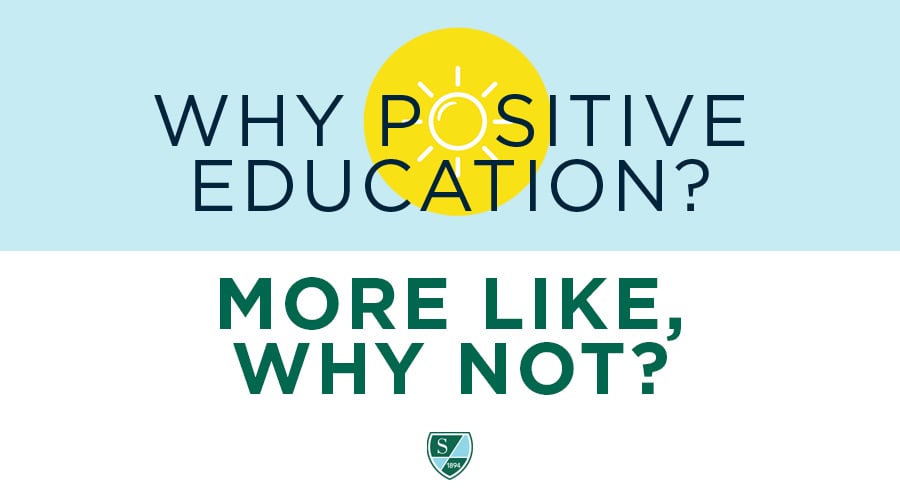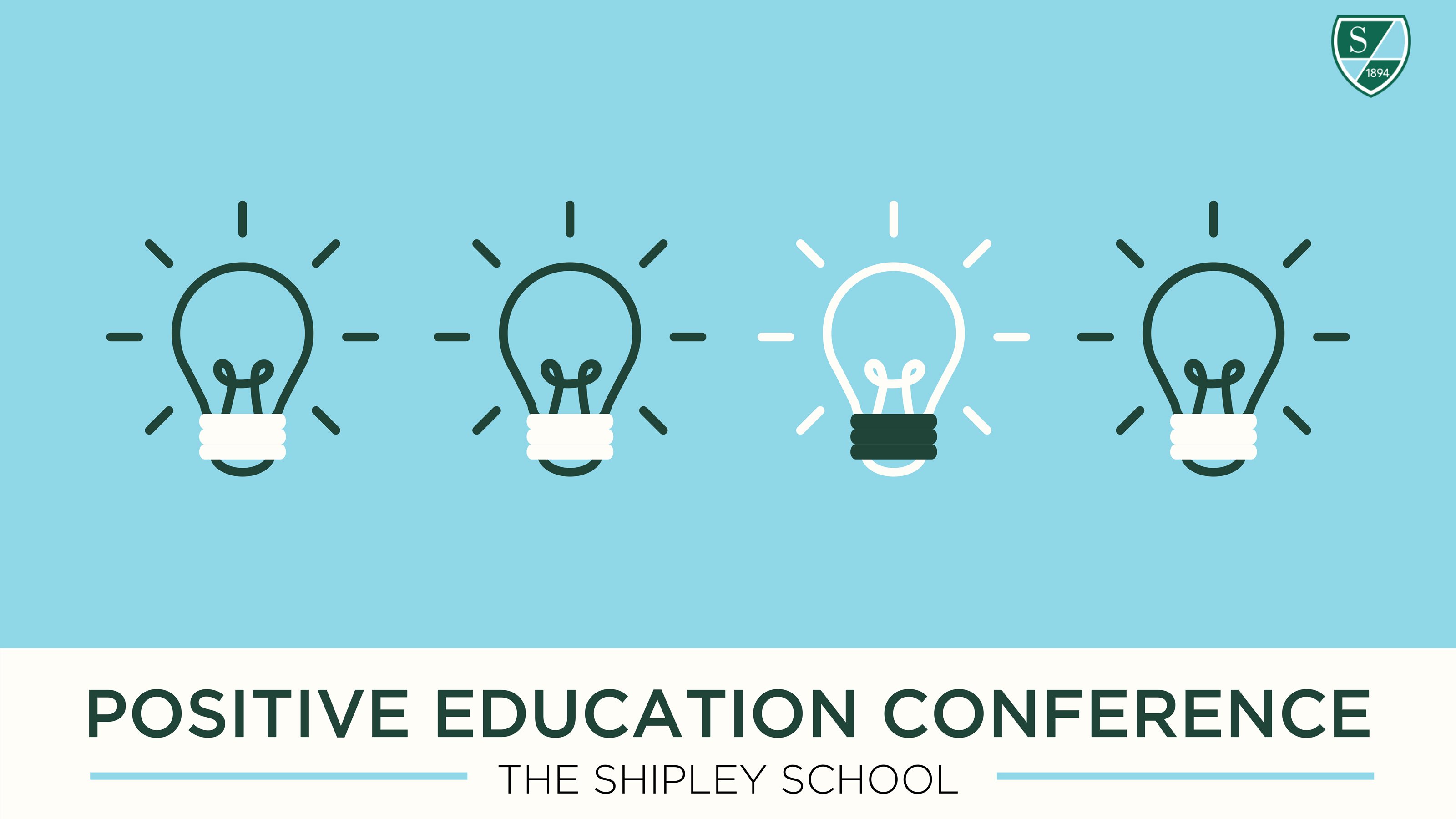Whenever I speak to a school, organization or new group of passionate, interested parents, I am inevitably asked, “Why Positive Education?” Mostly, this well-meaning question is coming from concerned adults who want to make sure that they or their children are being put in the best possible situation to succeed and create a good life for themselves. My response to this more-than-fair question is always the same: That a focus on well-being does not come at the exclusion of building a rock-solid foundation in academic skills and knowledge. In fact, and I can’t emphasize “fact” enough here, focusing on well-being makes it more likely that those skills and sets of knowledge will be both acquired and used. Let me show you what I mean.
In 2005, Dr. Sonja Lyubomirsky and colleagues published a seminal meta-analysis (analysis of analyses) entitled “The benefits of frequent positive affect: Does happiness lead to success?” Spoiler alert, the answer is a resounding yes. These researchers collected over 200 peer-reviewed studies on happiness, totalling a collective sample size of nearly 300,000 individual participants and ranging from basic correlational investigations to longitudinal and experimental designs that help us to establish causal relationships between variables. In this case, between happiness and culturally valued success. Their conclusions revealed that happiness precedes and, in many cases, causes positive outcomes and culturally valued markers of success like:
- Income levels, quality of work, and job evaluations
- Performance on cognitively complex tasks
- Physical health and mental health
- Sociability and relationships
- Altruism, community involvement, and citizenship
- Marital health
- Creativity
- Motivation
- Resilience, coping, and conflict resolution
Shawn Achor, best-selling author and Harvard-trained consultant to many of Fortune’s top 100 companies, refers to this empirical fact as “The happiness advantage”: The boost we often get when we move from a negative or neutral state into a positive one. A 2010 article in Forbes noted that Achor’s research shows:
- Positive employees outperform negative employees in terms of sales, energy levels, turnover rates, and health-care costs by as much as 30%.
- Optimistic salespeople outperform their pessimistic colleagues by up to 37%.
- Medical doctors are three times more creative and 50% more accurate at diagnosing patients when positive.
What about schools, though? It’s great that adults seem to get a well-being boost, but what about our kids? To address that question we can look to some of the research conducted in three different countries by Columbia professor Dr. Alejandro Adler. His work revealed that teaching skills and practices for well-being led to an increase in national standardized test scores. Or the work of Dr. Marc Brackett, the Director of the Yale Center for Emotional Intelligence, who notes the relationship between emotional intelligence and higher SAT scores and better grades among high school and college students.
This wealth of data should be enough to support a philosophy of Positive Education on its own, but consider it alongside the mountain of research we have on ill-being, too. Most of us are aware of the alarming increase in depression, stress, and anxiety among American children. It’s gotten so bad that American children now land in the bottom 25% of well-being and life-satisfaction scores among developed nations. Between 30-60% of elementary students require regular counseling, and we’ve seen a 28% increase in suicide rate over the last two decades alone. In the 1960s, the average onset age of depression was around 30. Today, it has dropped down to 14.5!
When Shipley’s Head of School, Michael Turner, says that “student achievement, individual well-being, and collective well-being are mutually dependent,” it’s not just hyperbole or sentiment. It's an empirically supported fact, demonstrated time again across different contexts and various age groups.
So, while it is a more-than-fair question for thoughtful, concerned adults to ask “Why Positive Education?” Perhaps the better question is, “Why not?”
Learn more about how Positive Education at Shipley helps students reach their full potential.
Interested in learning more about how Positive Education can help school communities flourish and put well-being at the heart of education?
Register to attend Shipley's 2nd Annual Positive Education Conference, from August 2-6, 2020, featuring some of the world's foremost experts in the fields of Positive Psychology and Positive Education, including Dr. Martin Seligman, Anne Johnstone, Professor Lea Waters, Justin Robinson, and David Bott.
References
Achor, Shawn. (2010). The Happiness Advantage: How A Positive Brain Fuels Success in Work and Life. Penguin Random House, New York, NY.
American Psychological Association. (2018). Stress in America: Generation Z. Stress in America Survey. Retrieved from www.apa.org/news/press/releases/stress/2018/stress-gen-z.pdf
Brackett, M. (2019). Permission to feel: Unlocking the power of emotions to help our kids, ourselves, and our society thrive. Celadon Books.
Centers for Disease Control and Prevention. (2018, June 7). Suicide rates rising across the U.S. [Press release]. Retrieved from www.cdc.gov/media/releases/2018/p0607-suicide-prevention.html
Floman, J. L., Brackett, M. A., Schmitt, L., & Baron, W. (2018, May). School climate, teacher affect, and teacher well-being: Direct and indirect effects. Presented at the Association for Psychological Science Convention in San Francisco, CA.
Gallup Inc. (2014). State of America’s schools: The path to winning again in education. Retrieved from www.gallup.com/services/178709/state-america-schools-report.aspx
Goleman, D. (1997). Emotional Intelligence: Why It Can Matter More Than IQ. New York: Bantam Books.”
Goudreau, Jenna (2010). Are You Investing In the Happiness Advantage? Forbes.
https://www.forbes.com/sites/jennagoudreau/2010/10/26/are-you-investing-in-the-happiness-advantage/#66bd66456983
Lipson, S. K., Lattie, E. G., & Eisenberg, D. (2018). Increased rates of mental health service utilization by US college students: 10-year population-level trends (2007–2017). Psychiatric Services, 70(1), 60–63. doi.org/10.1176/appi.ps.201800332”
Lyubomirsky, S., King, L. and Diener, E. (2005). The benefits of frequent positive affect: Does happiness lead to success? Psychological Bulletin, 131(6), 803-855.











